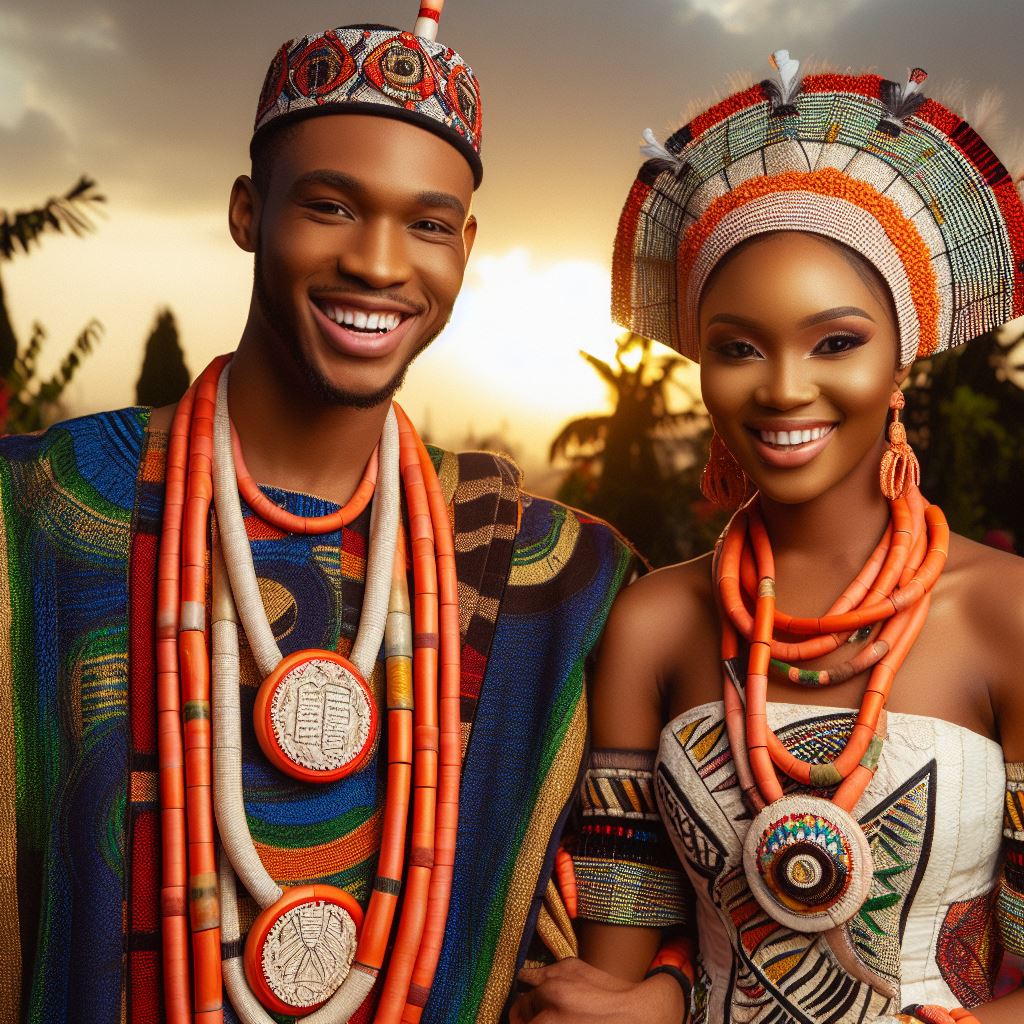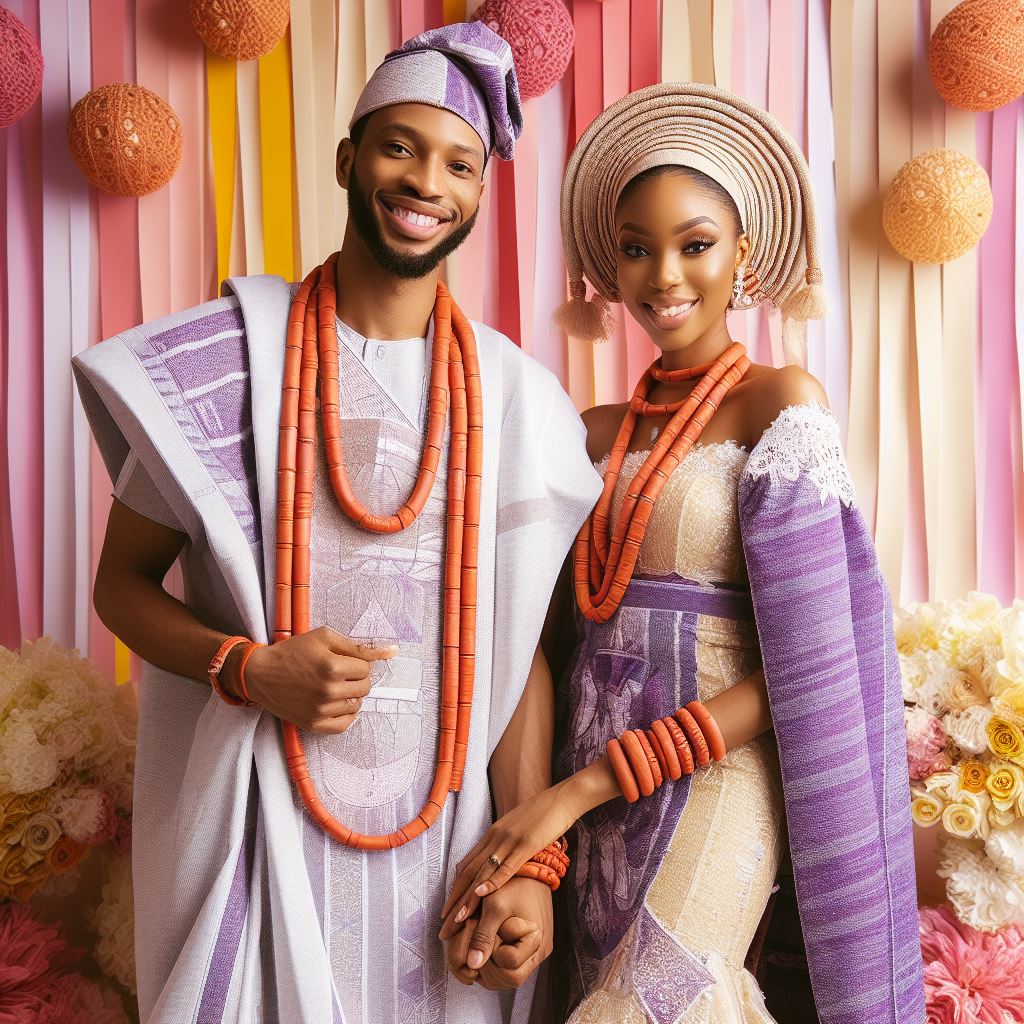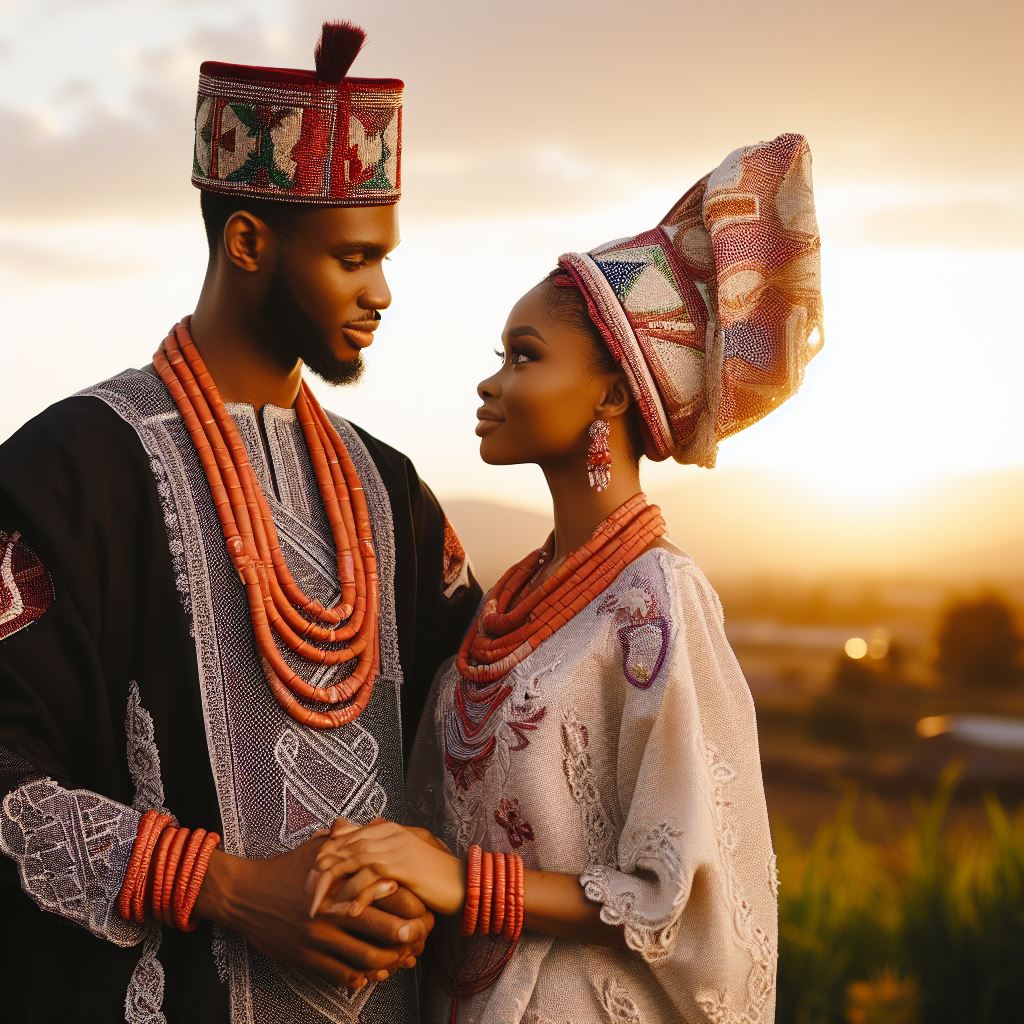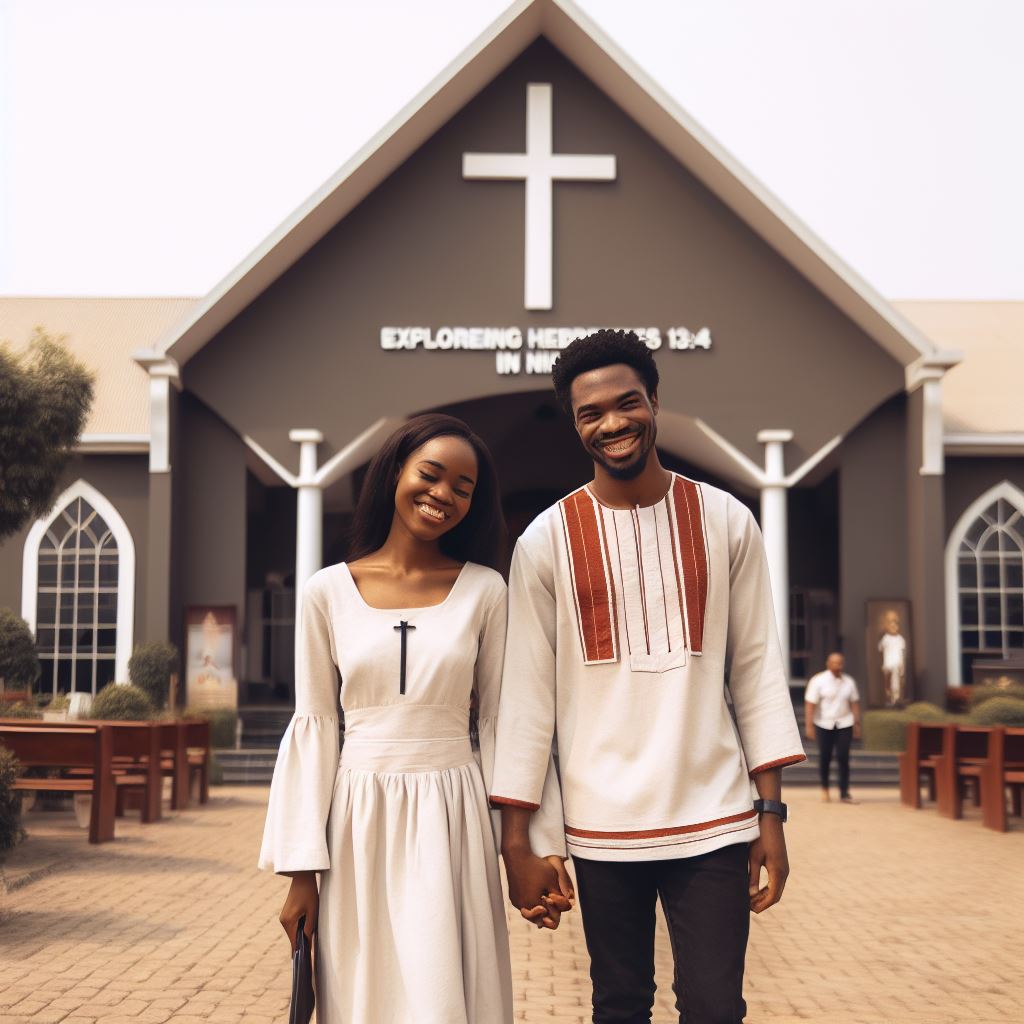Introduction
A. Brief Explanation of Hausa Culture in Nigeria
The Hausa culture, prevalent in Northern Nigeria, is rich in tradition, known for its vibrant customs, and closely-knit communities.
B. Importance of Weddings in Hausa Culture
- Weddings hold a central place in Hausa culture, signifying unity and heritage preservation.
- They showcase age-old customs, colorful attire, and lively celebrations that blend tradition and modernity.
- Hausa weddings are social events that not only join couples but also connect families and communities.
- These celebrations are characterized by grand feasts, traditional music, and vibrant dance performances.
- The blending of cultural elements with modern influences creates a unique and memorable wedding experience.
In this section, we’ll explore the intricate beauty of Hausa weddings, how they bridge tradition and modernity, and the significance they hold in this diverse and culturally rich region of Nigeria.
Read: Cultural vs. Biblical Views: Keeping the Marital Bed Pure in Nigeria
Traditional Hausa Wedding Customs
When it comes to Hausa weddings, they are a unique blend of tradition and modernity.
These weddings are colorful, vibrant, and filled with cultural rituals that have been passed down through generations.
In this section, we will explore the traditional Hausa wedding customs that make these celebrations so special.
A. Pre-wedding ceremonies
Before the main wedding event, there are a series of pre-wedding ceremonies that take place.
These ceremonies serve as the formal introduction of the two families and involve various customs and rituals.
- Introduction of the families: During this ceremony, the families of the bride and groom officially meet and exchange greetings.
It is a time for the families to get to know each other and establish a bond before the wedding. - Proposal and negotiation process: In the Hausa culture, the groom’s family is responsible for proposing to the bride’s family.
This involves presenting gifts, known as “sallah,” to the bride’s family and negotiating the dowry, known as “sadaki.”
B. The Fatiha ceremony
One of the most important and sacred ceremonies in a Hausa wedding is the Fatiha ceremony.
It is a religious ceremony that takes place in the presence of family and friends.
- Explanation of Fatiha ceremony: The Fatiha ceremony is a marriage blessing conducted by an Islamic cleric.
It involves reciting verses from the Quran, followed by prayers for the couple’s union and happiness. - Role of Islamic customs and traditions: Islamic customs and traditions play a significant role in the Fatiha ceremony.
The ceremony is conducted according to Islamic principles, and the couple seeks blessings from Allah for a prosperous and harmonious married life.
C. The Kamu ceremony
The Kamu ceremony is another significant event in a Hausa wedding. It is a pre-wedding ceremony that involves traditional customs and showcases the beauty and elegance of the bride and groom.
- Significance of the Kamu ceremony: The Kamu ceremony holds cultural and social significance.
It is an opportunity for the bride and groom to display their traditional attire, jewelry, and overall appearance to their families and friends. - Dress code and attire for the bride and groom: The bride typically wears a stunning dress called “zawarawa,” adorned with intricate embroidery and accessorized with gold jewelry.
The groom wears a “babban riga,” a flowing gown made of rich fabric.
In short, Hausa weddings are a beautiful blend of culture and modernity.
The pre-wedding ceremonies, Fatiha ceremony, and Kamu ceremony all contribute to the rich and vibrant celebrations.
These customs not only signify the union of two individuals but also reflect the deep-rooted traditions and values of the Hausa people.
Read: Understanding the Christian Perspective on Marriage in Nigeria
Modern Influences and Adaptations
Modernization has brought about changes in Hausa weddings, infusing them with Western elements and incorporating the use of technology.
These adaptations have added a contemporary touch to traditional ceremonies.
A. Incorporation of Western elements
1. The introduction of engagement rings
- This is one of the notable Western influences in Hausa weddings.
- This tradition has become popular among Hausa couples, as it symbolizes commitment, love, and the beginning of a lifelong journey together.
- The exchange of engagement rings has become an important ritual in Hausa wedding ceremonies.
2. Influence of wedding gowns and tuxedos
- Another significant influence of Western weddings on Hausa culture is the adoption of wedding gowns and tuxedos.
- In the past, Hausa brides would wear traditional attire, such as a henna-dyed gown called “lalle,” while grooms would don the “abaya,” a flowing robe.
- However, with the rise of modernization, many Hausa couples now opt for Western-style wedding attire, giving their ceremonies a blend of Hausa and Western aesthetics.
B. Arrival of social media and technology
1. Impact on wedding planning and invitations
- The advent of social media platforms, such as Facebook, Instagram, and WhatsApp, has revolutionized wedding planning and invitations.
- Couples now create dedicated wedding pages to share updates, photos, and details of their upcoming nuptials.
- This allows family, friends, and well-wishers to follow along and participate in the wedding preparations regardless of their geographical location.
2. Live streaming of Hausa weddings
- Live streaming has become increasingly popular in Hausa weddings, allowing couples to share their special day with those unable to attend physically.
- With the help of technology, such as smartphones and high-speed internet, Hausa weddings can be streamed live to the screens of distant family members and friends.
- This allows them to witness the joyous celebration in real time, fostering a sense of togetherness despite the physical distance.
In essence, the evolution of Hausa weddings highlights a blend of culture and modernity.
The incorporation of Western elements like engagement rings, wedding gowns, and tuxedos adds a contemporary touch to traditional ceremonies.
Furthermore, the arrival of social media and technology has revolutionized wedding planning and allowed couples to share their special day through live streaming.
These adaptations reflect the changing times and the desire to embrace both traditional customs and modern practices in Hausa weddings.
Read: The Moral Implications of ‘The Bed Undefiled’ in Today’s Society
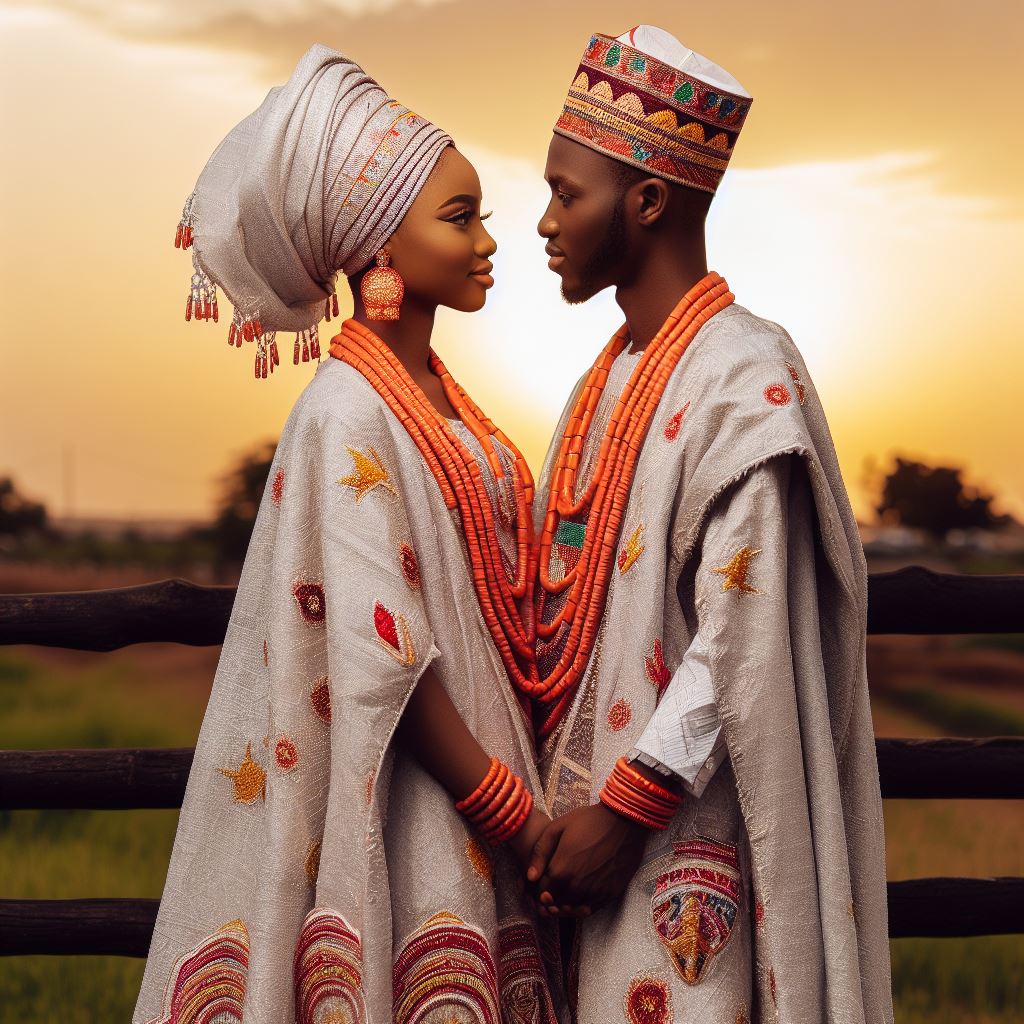
Celebration and Festivities
Weddings in the Hausa culture are not just a union between two individuals but a celebration of love, culture, and tradition.
The vibrant celebration and festivities make Hausa weddings truly unique and memorable.
A. Essence of music and dance
Music and dance are essential components of Hausa weddings.
Traditional Hausa music genres fill the air, creating a lively atmosphere that reflects the joyous occasion.
The beats and melodies of the indigenous instruments, such as the goje, kakaki, and kalangu, resonate throughout the venue, capturing the attention of all attendees.
Additionally, professional dancers play a crucial role in entertaining guests during the wedding ceremony.
They skillfully move to the rhythm of the music, showcasing their talent and adding excitement to the event.
Their colorful costumes and captivating dance routines contribute to the overall festive ambiance.
B. Delicacies and cuisine at Hausa weddings
Food is an integral part of Hausa culture, and weddings are no exception.
Hausa weddings are known for their delectable array of dishes that showcase the rich flavors of the region.
Guests are treated to a diverse range of traditional Hausa cuisine that leaves their taste buds satisfied and wanting more.
Some of the popular Hausa dishes served at weddings include tuwon shinkafa (a maize-based meal eaten with various soups), miyan kuka (a nutritious soup made from powdered baobab leaves), and dambu nama (a spicy dried meat delicacy).
These dishes not only represent the culinary heritage of the Hausa people but also reflect their creativity and inventiveness in combining different ingredients and spices.
Moreover, the act of sharing meals holds great significance in Hausa weddings. It symbolizes unity, togetherness, and the spirit of generosity.
The bride and groom, alongside their families, ensure that everyone present at the wedding is well-fed.
Guests are seated together and encouraged to enjoy the meals in a communal setting, fostering a sense of belonging and strengthening social bonds.
Essentially, Hausa weddings are a beautiful blend of culture and modernity.
The celebration and festivities, characterized by traditional music and dance, as well as the mouth-watering delicacies served, create an unforgettable experience for all.
Hausa weddings exemplify the importance of preserving cultural heritage while embracing the joys and values of contemporary times.
Read: Marriage in Scripture: Honour, Love, and Faithfulness Unveiled
Conclusion
A. Recap of Hausa wedding customs and traditions
Hausa weddings are rich in customs and traditions that have been passed down for generations.
From the elaborate preparations to the intricate ceremonies, every aspect of a Hausa wedding is steeped in cultural significance.
B. Appreciation for the blend of culture and modernity in Hausa weddings
What sets Hausa weddings apart is their ability to seamlessly blend traditional customs with modern elements.
This fusion creates a unique and enchanting experience that showcases the beauty of both the past and the present.
C. Final thoughts on the importance of preserving cultural traditions in modern times
- Preserving cultural traditions is crucial in a world that is becoming increasingly homogenous.
- Hausa weddings serve as a reminder of the importance of staying connected to one’s roots and embracing the richness of cultural diversity.
- By maintaining these customs, we not only honor our ancestors but also give future generations a glimpse into their heritage.
- It is through the preservation of cultural traditions that we can continue to celebrate the distinctiveness of each community and create a more harmonious and inclusive society.

